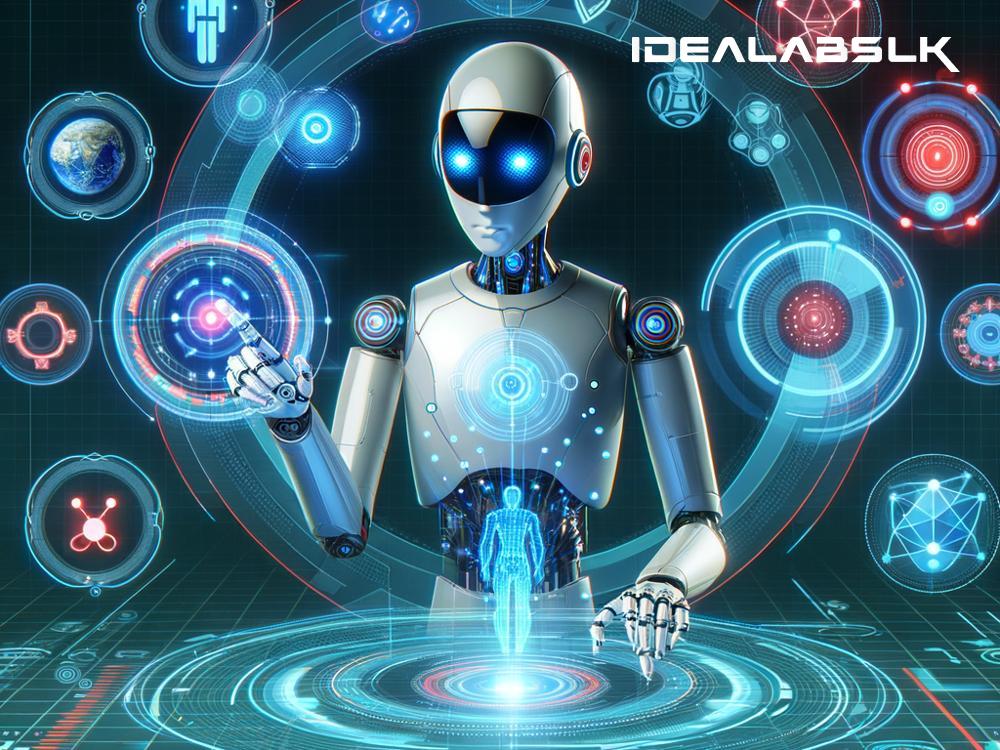Title: How AI-Powered Games Will Revolutionize UI Design in 2024
As we step into the future, Artificial Intelligence (AI) continues to intertwine with various aspects of our lives, and the gaming industry is no exception. In 2024, AI-powered games are not just revolutionizing gameplay mechanics and storytelling but are also set to redefine User Interface (UI) design in ways we've only begun to imagine. Let's dive into how this technological marvel will change the gaming experience through innovative UI designs.
Understanding AI in Gaming
Before exploring the impact on UI design, it's crucial to grasp what we mean by AI in gaming. Unlike traditional games, where developers pre-program every possible action or outcome, AI-powered games use learning algorithms to evolve. This means the game can adapt in real-time, offering personalized experiences and challenges based on how you play.
How AI is Shaping UI Design
-
Personalized Interfaces: Imagine booting up a game and having the UI adapt to your preferred gameplay style, color scheme, and even the type of content you enjoy most. AI can analyze your past interactions and adjust the UI to meet your specific needs, making the gaming experience more comfortable and immersive.
-
Dynamic Content Display: Traditional games have static UIs where every player navigates the same menus and options. With AI, your game UI could dynamically change based on your current objectives, skill level, or even the time of day you're playing. This means less time scrolling through irrelevant options and more time enjoying the gameplay.
-
Voice-Controlled Interfaces: As AI becomes more sophisticated, the way we interact with games is set to change dramatically. Voice-controlled UIs, powered by AI, will understand and execute complex commands, making game navigation more intuitive and hands-free. This could be especially revolutionary for accessibility, opening up new gaming possibilities for players with physical disabilities.
-
Predictive Text and Search: Ever been overwhelmed by an in-game inventory or struggled to find a specific option in a sprawling menu? AI-enhanced UIs can offer predictive text and intelligent search functionalities, making it easier to find what you're looking for by simply describing it. This can make managing game elements far less daunting and more user-friendly.
-
Adaptive Tutorial Systems: Learning to play a new game can sometimes feel like a steep hill to climb. AI-powered UIs can change this by offering adaptive tutorial systems that gauge your familiarity with game mechanics and adjust the learning curve accordingly. This personalized approach can reduce frustration for beginners while allowing seasoned players to skip the basics and dive right in.
-
Emotion-responsive Interfaces: Perhaps one of the most futuristic aspects is the development of emotion-responsive UIs. Using AI to interpret player emotions through voice or facial recognition, the game could adjust its UI to better suit your mood. For instance, if you're feeling frustrated, the game might offer helpful hints or simplify its UI to reduce cognitive load.
Challenges and Considerations
While the prospect of AI-powered UIs in gaming is exciting, it's not without its challenges. Privacy concerns, data security, and the potential for AI to misunderstand user intentions are significant considerations. Furthermore, ensuring these advanced UIs remain accessible and inclusive to all players will be a vital aspect of their design and implementation.
The Future is Bright
As we look towards 2024 and beyond, it's clear that AI will play a pivotal role in not just transforming the games we play but how we interact with them. By redefining UI design, AI-powered games are set to offer a level of personalization, accessibility, and interaction that was previously unimaginable. As these technologies evolve, so too will our understanding and expectations of what gaming can be. While challenges remain, the potential for AI to enhance our gaming experiences is boundless, promising a future where each game feels uniquely tailored to us, ushering in a new era of interactive entertainment.
In summary, as AI continues to develop and become more integrated within the gaming industry, its impact on UI design is undeniable. From creating personalized experiences to revolutionizing the way we navigate and interact with games, AI is setting the stage for a future where the lines between player and game blur. The changes coming in 2024 are just the beginning, and as players and developers alike, we can only look forward to the innovations that lie ahead.

